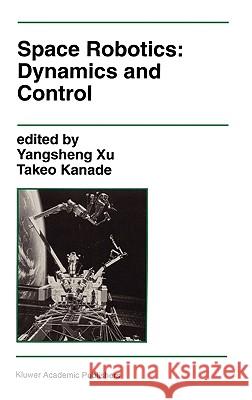Space Robotics: Dynamics and Control » książka
Space Robotics: Dynamics and Control
ISBN-13: 9780792392651 / Angielski / Twarda / 1992 / 285 str.
Space Robotics: Dynamics and Control
ISBN-13: 9780792392651 / Angielski / Twarda / 1992 / 285 str.
(netto: 575,06 VAT: 5%)
Najniższa cena z 30 dni: 578,30
ok. 22 dni roboczych.
Darmowa dostawa!
Robotic technology offers two potential benefits for future space exploration. One benefit is minimizing the risk that astronauts face. The other benefit is increasing their productivity.
Realizing the benefits of robotic technology in space will require solving several problems which are unique and now becoming active research topics. One of the most important research areas is dynamics, control, motion and planning for space robots by considering the dynamic interaction between the robot and the base (space station, space shuttle, or satellite). Any inefficiency in the planning and control can considerably risk by success of the space mission.
Space Robotics: Dynamics and Control presents a collection of papers concerning fundamental problems in dynamics and control of space robots, focussing on issues relevant to dynamic base/robot interaction.
The authors are all pioneers in theoretical analysis and experimental systems development of space robot technology. The chapters are organized within three problem areas: dynamics problems, nonholonomic nature problems, and control problems. This collection provides a solid reference for researchers in robotics, mechanics, control, and astronautical science.











